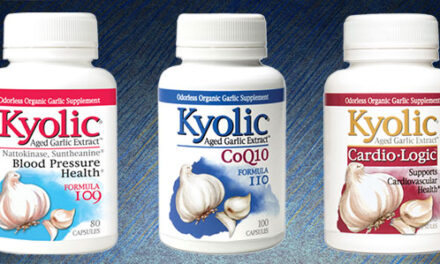“If calcium is so bad for my heart, why should I be taking a calcium supplement for my bones?”
This is a question I hear frequently in my office and one that causes me great concern.
Bone health is important throughout your life. Osteoporosis and bone fractures, similar to cardiovascular disease, are not just the problems of old age. Like the heart and the blood vessels, the health of our bones is something we usually do not think about much. Then, a problem arises—such as a hip fracture—and just like the cardiovascular system, it is too late to make any real impact.
The one thing most people will do to support their bone health is take a calcium supplement, which is important due to the fact our bodies cannot produce calcium on their own, and calcium plays a role in many of the body’s systems. But too much calcium in the body left unattended can have a negative effect, such as depositing in the arteries and blood vessels causing calcification. This calcification causes stiffening that puts a strain on the cardiovascular system.
When my friend, an integrative general practitioner, asked if I was recommending vitamin K2 to my patients, I was surprised. What is vitamin K2? I decided to find out. I was shocked—and excited—at how much good research supported this nutrient for bone and heart health.
The discovery of this amazing body of research was the motivation behind my new book, “Vitamin K2: The Missing Nutrient for Heart and Bone Health.” It is important that patients as well as health care professionals understand the benefit of this important nutrient and the scientific evidence supporting it.
What is Vitamin K2?
Vitamin K2 is part of the vitamin K family, a group of fat-soluble vitamins. Vitamin K is split into two groups: vitamin K1 and vitamin K2. The difference lies on a molecular level. Vitamin K1 has one molecule, so it is a phylloquinone. The K2 group has multiple molecules and known as menaquinones.
While K vitamins are crucial for blood clotting, vitamin K2, unlike K1, is utilized by the liver and then is available to tissues beyond the liver, such as the bones, arteries and blood vessels. So why is vitamin K2 so valuable?
Simply put, vitamin K2 is the body’s light switch. It activates or “turns on” important proteins in the body such as osteocalcin for strong bones and the matrix Gla protein (MGP) in the arteries and blood vessels. By turning on these vitamin K2 dependent proteins, calcium is kept out of the arteries (where it can cause hardening of arteries and blockages) and transported and kept in the bones where it belongs.
Although vitamin K2 is a relative newcomer to the supplement arena, I believe there is now enough scientific evidence to make you take notice and add it to your list of essential nutrients. While I will focus on vitamin K2’s proven cardiovascular benefits, a multitude of studies have also demonstrated vitamin K2’s effectiveness for bone health and children’s health. And more research is being done every day to support its benefits in these crucial areas to the general population.
Undeniable Evidence
Let’s start with the evidence of vitamin K2’s role in calcification. The landmark Rotterdam population cohort study1 examined vitamin K2 in a normal human population, and was the first large clinical study to suggest the huge impact vitamin K2 may play in reducing cardiovascular events and mortality. Results among 4,807 healthy individuals (at the start of the study) age 55 and older, suggested a strong protective effect of the highest dietary vitamin K2 intake on arterial calcification. The study showed a reduction in risk for cardiovascular diseases and cardiovascular disease-related deaths by as much as 50 percent for subjects who ingested more vitamin K2. High intakes of vitamin K2 also reduced the all-cause mortality by 25 percent.
Dietary vitamin K1, obtained from green vegetables, had no influence on excessive calcium accumulation, even when consumed in much larger quantities than K2.
Another study in Nutrition, Metabolism, & Cardiovascular Diseases looked at the effect of vitamin K2 on arterial function, or the ability to contract and relax blood vessels. A group of 16,057 women (all free of cardiovascular diseases at baseline) aged 49–70 years were followed for eight years2. The final results were again really promising: K2 vitamins were shown to reduce the risk of cardiovascular diseases. The risk of coronary heart disease dropped nine percent for every 10 micrograms of vitamin K2 (MK-7, MK- 8, and MK-9) subjects consumed. Vitamin K1 intake had no effect.
If you are still not convinced that vitamin K2 delivers important cardiovascular benefits, there is one exciting clinical study that has really captured my attention recently and was published this year3. It shows a nutritional dose (180 mcg) of specific vitamin K2 called MenaQ7 taken daily for three years not only inhibited age-related stiffening of the artery walls, but also made significant improvements in artery flexibility—meaning calcification was actually regressed, leaving arteries healthier and more flexible.
This study is a breakthrough because it is the first intervention trial where the results confirm the association made by previous population-based studies: that vitamin K2 intake is linked to cardiovascular risk. According to the researchers, the data demonstrated that a nutritional dose of vitamin K2 can in fact promote cardiovascular health.
Completing the Health Picture
The four keys to good health for everyone are nutrition (including supplements), exercise, stress management and sleep. Pills alone are not the solution, but I feel very strongly that supplements fill the nutritional gaps our diets are lacking. Vitamin K2 should be taken along with vitamin D and calcium, and it’s best to look for one supplement that contains all three ingredients combined, especially the clinically studied MenaQ7 form of vitamin K2 that can be found listed as such on the nutritional label.
Finally, I want to emphasize that you must be proactive with your health, and I encourage you to make your doctor an active partner in your pursuit of well-being. Discuss your health goals and concerns with your physician for a personal roadmap on how to get there.
References:
- Geleijnse JM, Vermeer C, Grobbee DE, Schurgers LJ, Knapen MH, van der Meer IM, Hofman A, Witteman JC. Dietary intake of menaquinone is associated with a reduced risk of coronary heart disease: the Rotterdam Study. J Nutr. 2004 Nov;134(11):3100-5. doi: 10.1093/jn/134.11.3100. PMID: 15514282.
- Gast GC, de Roos NM, Sluijs I, Bots ML, Beulens JW, Geleijnse JM, Witteman JC, Grobbee DE, Peeters PH, van der Schouw YT. A high menaquinone intake reduces the incidence of coronary heart disease. Nutr Metab Cardiovasc Dis. 2009 Sep;19(7):504-10. doi: 10.1016/j.numecd.2008.10.004. Epub 2009 Jan 28. PMID: 19179058.
- Knapen MH, Drummen NE, Smit E, Vermeer C, Theuwissen E. Three-year low-dose menaquinone-7 supplementation helps decrease bone loss in healthy postmenopausal women. Osteoporos Int. 2013 Sep;24(9):2499-507. doi: 10.1007/s00198-013-2325-6. Epub 2013 Mar 23. PMID: 23525894.











